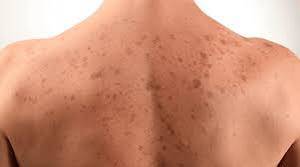How to Reduce Black Spots on the Body
Black spots on the skin, often referred to as hyperpigmentation, can be a source of concern for many individuals. These spots can arise due to various factors, including sun exposure, hormonal changes, aging, and skin injuries. While they are generally harmless, many people seek ways to reduce their appearance for cosmetic reasons. Here are effective strategies to help minimize black spots on the body.
1. Sun Protection
One of the most effective ways to prevent and reduce black spots is by protecting your skin from the sun. UV exposure can exacerbate pigmentation issues. Use a broad-spectrum sunscreen with an SPF of 30 or higher, applying it generously to all exposed skin. Reapply every two hours, especially after swimming or sweating. Additionally, wearing protective clothing, wide-brimmed hats, and seeking shade during peak sunlight hours can further reduce sun exposure.
2. Topical Treatments
Various topical treatments can help fade hyperpigmentation. Ingredients to look for include:
- **Hydroquinone:** This skin-lightening agent can effectively reduce the appearance of dark spots. However, it should be used with caution and under a dermatologist's supervision, as prolonged use may lead to skin irritation.
- **Retinoids:** Retinoids, derived from vitamin A, promote cell turnover and can help fade dark spots over time. They can also improve skin texture and tone.
- **Vitamin C:** This antioxidant brightens the skin and can help inhibit melanin production. Serums containing stable forms of vitamin C can be beneficial for reducing pigmentation.
- **Alpha Hydroxy Acids (AHAs):** Ingredients like glycolic acid can exfoliate the skin, helping to remove dead skin cells and promote new cell growth, which can diminish dark spots.
- **Azelaic Acid:** This ingredient is effective for both acne and hyperpigmentation, offering a dual benefit for those with multiple skin concerns.
3. Professional Treatments
If topical treatments are insufficient, various professional treatments can help reduce black spots:
- Chemical Peels:These treatments involve applying a chemical solution to the skin, which exfoliates the outer layer and can significantly reduce pigmentation.
- Laser Therapy: Lasers can target dark spots specifically, breaking up melanin deposits. Different types of lasers may be used depending on the depth and nature of the pigmentation.
- Microdermabrasion: This procedure involves exfoliating the skin using tiny crystals, helping to improve skin texture and reduce dark spots.
- Intense Pulsed Light (IPL): IPL treatments can target pigmentation and improve overall skin tone by using various wavelengths of light.
4. Natural Remedies
For those preferring natural solutions, several home remedies may help lighten dark spots, though results can vary:
- Lemon Juice: Known for its natural bleaching properties, lemon juice can lighten spots when applied topically. However, it may cause sensitivity to sunlight, so it’s essential to use sunscreen after application.
- Aloe Vera: This soothing plant contains aloin, a natural depigmenting compound. Applying aloe vera gel can help fade dark spots over time.
- Green Tea Extract: Rich in antioxidants, green tea may help reduce skin discoloration when applied topically.
5. Healthy Lifestyle Choices
A balanced diet and healthy lifestyle can impact skin health. Incorporate plenty of fruits and vegetables rich in antioxidants, vitamins, and minerals to support skin repair. Staying hydrated is also crucial for maintaining healthy skin.
Regular exercise improves circulation, which can promote healthier skin. Additionally, managing stress through practices like yoga or meditation can help maintain hormonal balance, potentially reducing skin issues.
Conclusion
Reducing black spots on the body involves a combination of sun protection, topical treatments, professional interventions, and healthy lifestyle choices. While complete removal may not be possible, consistent care can significantly minimize their appearance. Always consult a dermatologist to determine the most suitable approach for your skin type and concerns. By following these strategies, you can achieve a more even skin tone and enhance your confidence.




No comments yet
Be the first to share your thoughts!